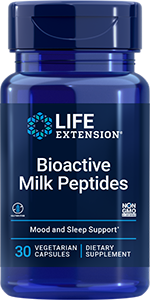- Science & Research
- Science News
- Newsletter
- 2013
- March 12

Newsletter
Newsletter
Higher Vitamin D Levels Linked To Lower Hypertension Risk
Higher vitamin D levels linked to lower hypertension risk
Tuesday, March 12, 2013. The results of a meta-analysis that appeared this month in the European Journal of Epidemiology reveal an association between higher vitamin D levels and a lower risk of developing high blood pressure. S. K. Kunutsor of the University of Cambridge and colleagues selected eight articles describing eleven studies for their analysis. Seven studies reported vitamin D status as serum or plasma 25-hydroxyvitamin D, and four reported vitamin D intake from diet. Study participants were followed for periods ranging from 1.3 to 14 years. Out of a total of 283,537 subjects, 55,816 cases of hypertension occurred over follow-up. Having a 25-hydroxyvitamin D level among the top one-third of participants was associated with a 30% lower risk of hypertension in comparison with the risk experienced by those whose levels were among the lowest third. A pooled analysis of five studies revealed that each 10 nanogram per milliliter (ng/mL) increase in 25-hydroxyvitamin D was associated with a 12% reduction in the risk of future hypertension. No significant effect for vitamin D was observed in studies that assessed vitamin D status using intake from dietary sources. Due to the fact that sun exposure can be a major source of vitamin D, the authors remark that dietary intake may not be an accurate indicator of an individual's vitamin D status. Possible mechanisms cited by the authors to explain the effects of reduced vitamin D levels on blood pressure include activation of the renin-angiotensin-aldosterone system and increased insulin resistance, as well as adverse effects in vascular endothelial and smooth muscle cells. "This is the largest meta-analysis of prospective associations ever conducted to date which involves more incident hypertension cases than ever before and provides precise estimates of the magnitude of the association of hypertension risk with vitamin D levels," the authors write. "Studies are needed to determine whether this represents a causal association and also to determine whether vitamin D supplementation or therapy may be beneficial in the prevention or the treatment of hypertension," they conclude. | ||||||||||||||||
 | ||||||||||||||||
| ||||||||||||||||
| ||||||||||||||||
 | ||||||||||||||||
|
| ||||||||||||||||
|
| ||||||||||||||||
The latest news on aging, nutrition, and vitamins
Lab
Testing
How Life Extension lab testing works











